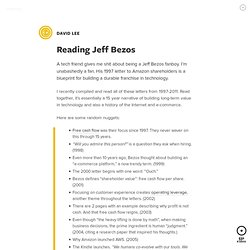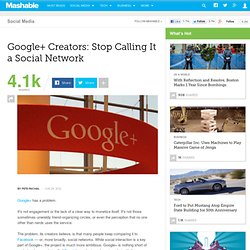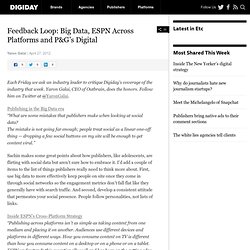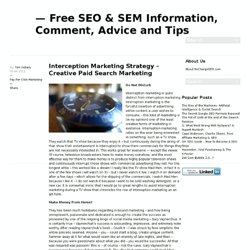

Monetizing On Your Digital Hustle With Gary Vaynerchuk. Powerful Thoughts From Paul Graham. Paul Graham is most famous for heading up Y Combinator, a seed-stage startup funding firm, and also for Hacker News, a social news website revolving around computer hacking, startup companies, and as their submission guidelines state, “anything that gratifies one’s intellectual curiosity”.

Graham’s essays online are highly regarded for their insight and relevance – and his book, Hackers and Painters, is no different. Hackers and Painters, as Graham describes it, “examines the world of hackers and the motivations of the people who occupy it.” Although it informs the world of hackers more generally, the concepts within reach much further, and have many takeaways outside the programming world. For the uninformed, “hackers” , are the programmers and developers that code the internet – not the traditionally imagined security disrupters and virus-spreaders as is sometimes thought. The idea of “hackers”, here, can be moved over to the “makers” – people that create. How to Engage Industry Influencers for Content Marketing Success. Air New Zealand honors ‘The Hobbit’ with preflight video. Reading Jeff Bezos. A tech friend gives me shit about being a Jeff Bezos fanboy.

Has Innovation Lost Its Meaning? Google+ Creators: Stop Calling It a Social Network. Google+ has a problem.

It's not engagement or the lack of a clear way to monetize itself. It's not those sometimes-unwieldy friend-organizing circles, or even the perception that no one other than nerds uses the service. The problem, its creators believe, is that many people keep comparing it to Facebook — or, more broadly, social networks. While social interaction is a key part of Google+, the project is much more ambitious. Google+ is nothing short of a wholesale upgrade to all of Google's products and services, but with the identity of the user incorporated.
Mashable sat down with Vic Gundotra, Google's senior vice president of social business, and Bradley Horowitz, Google+'s vice president of product, at the Google I/O developer conference. "Google+ is just an upgrade to Google," says Gundotra. Gundotra and others have said this before, and you get the sense that they really believe in their recipe for Kool-Aid. How to End This Depression by Paul Krugman. The depression we’re in is essentially gratuitous: we don’t need to be suffering so much pain and destroying so many lives.

We could end it both more easily and more quickly than anyone imagines—anyone, that is, except those who have actually studied the economics of depressed economies and the historical evidence on how policies work in such economies. The truth is that recovery would be almost ridiculously easy to achieve: all we need is to reverse the austerity policies of the past couple of years and temporarily boost spending. Never mind all the talk of how we have a long-run problem that can’t have a short-run solution—this may sound sophisticated, but it isn’t. With a boost in spending, we could be back to more or less full employment faster than anyone imagines. But some readers will wonder, isn’t a recovery program along the lines I’ve described just out of the question as a political matter? White Papers. The Start-Up of You - The Economist Reviews Start-Up of You. March 7 2013 - posted by The Start-Up of You Team Reid wrote a post on LinkedIn about risk, which has already been shared over 3000 times and received over 900 likes and comments.

The opening graf: Matthew Keys » Online Content & News Producer. Feedback Loop: Big Data, ESPN Across Platforms and P&G’s Digital. Each Friday we ask an industry leader to critique Digiday’s coverage of the industry that week.

Yaron Galai, CEO of Outbrain, does the honors. Follow him on Twitter at @YaronGalai. Publishing in the Big Data era“What are some mistakes that publishers make when looking at social data? The mistake is not going far enough; people treat social as a linear one-off thing — dropping a few social buttons on my site will be enough to get content viral.” Sachin makes some great points about how publishers, like adolescents, are flirting with social data but aren’t sure how to embrace it. Inside ESPN’s Cross-Platform Strategy“Publishing across platforms isn’t as simple as taking content from one medium and placing it on another. ESPN has done a tremendous job of tailoring its content to various multimedia platforms. P&G Leans on Digital in Corporate-Image Push“Unlike past P&G efforts, the ‘Thank You Mom’ campaign isn’t pushing products. Interception Marketing Strategy & Campaign Execution. On April 6, 2011 by Tim Vickery in Pay Per Click Marketing , Comments (0) Do Not Disturb Interception marketing is quite distinct from interruption marketing.

Interruption marketing is the forceful insertion of advertising within content a user wishes to consume – this kind of marketing is (in my opinion) one of the least creative forms of marketing in existence. Interruption marketing relies on the user being interested in something, such as a TV show. Storytelling.